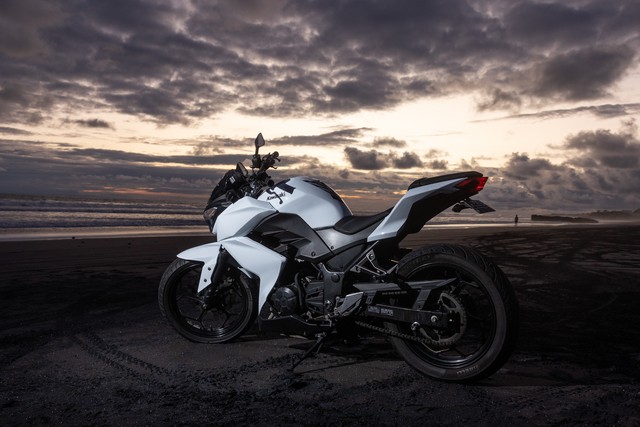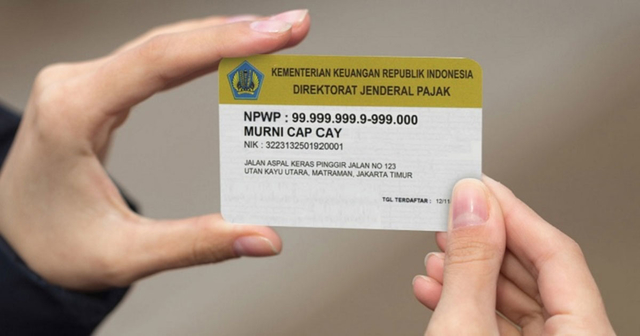Buying or selling a vehicle as a foreigner in Bali can often feel like playing a chaotic game of telephone.
One person might say, “I didn’t have a KITAS when I bought my first bike, and no one asked for it when I sold it either.”
Meanwhile, someone else may warn, "Want a new bike without a KITAS? Good luck! You’ll need a passport, proof of residence, your tax card, and maybe even a sacrificial goat."
Yet, another reassures, "Just have an Indonesian friend register it in their name and sort out the paperwork later… or, you know, never."
Then there’s the claim: “You absolutely need a KITAS for a car—unless you’ve got a cousin’s friend's uncle who knows a guy. Oh, and the car has to be registered in the region where your KITAS was issued… because logic.”
For second-hand motorbikes, another voice might suggest, "Why even bother registering it in your name? Just ride it into the sunset for a couple of years and toss it aside when it starts sputtering—like a used tissue."
To which someone replies, “You know, that’s illegal, right?”

As you've noticed, opinions on buying and selling vehicles as a foreigner in Bali can vary dramatically, leading to a lot of confusion. This article aims to clarify the official rules and explain why such conflicting advice exists, often due to the range of local practices. The good news is that if you're a foreign vehicle owner looking to sell, the answer is clear: yes, you can sell your vehicle. By familiarising yourself with the regulations and common practices, you can confidently navigate the process.
Foreign Ownership of Vehicles in Indonesia
Vehicle ownership in Indonesia is regulated by Registrasi dan Identifikasi Kendaraan Bermotor (Regident Ranmor), which mandates that all motor vehicles be registered and identified by the police. This applies to new vehicles, ownership transfers, renewals, and general documentation.
Foreigners are eligible to own vehicles in Indonesia, provided they meet certain requirements (such as having a KITAS/KITAP) outlined here.
When you buy a new car in Indonesia, you’ll receive several essential documents that are crucial for future transactions, including selling your vehicle. These are:
- BPKB (Vehicle Ownership Document): This serves as the primary proof of ownership, similar to a car title in other countries.
- STNK (Vehicle Registration Certificate): This document indicates that the vehicle is officially registered with the authorities.
- Faktur Kendaraan (Original Sales Receipt): This receipt details the purchase transaction and acts as proof of sale.
Selling Your Vehicle in Bali as a Foreigner
As a foreigner selling your vehicle in Bali, you generally have three options:
- Official dealerships – These dealerships (e.g., Honda, Suzuki) typically buy back vehicles of their own brand, provided the model meets certain standards, such as being relatively new.
- Private dealerships (jual beli) – Unlike official dealerships, private dealerships deal with all types of cars and do not have restrictions on model age.
- Private buyers – You can sell directly to individuals, often through online platforms such as Facebook Marketplace.
If you are a KITAS or KITAP holder with a recent model vehicle, selling through official dealerships, private dealerships, or directly to individuals should be relatively straightforward.
Note that if you change your visa status after purchasing the car, you can continue using the vehicle without issues. However, selling it at official dealerships may be problematic, as they typically require a KITAS/KITAP for the transaction. In such cases, you may need to explore alternative options, such as private dealerships or direct sales to individuals.
For those selling an older vehicle or lacking a KITAS/KITAP, jual beli dealerships and private buyers are viable options.
At jual beli dealerships, you'll generally need the STNK (Vehicle Registration Certificate), BPKB (Vehicle Ownership Document), and the original sales receipt, known as faktur kendaraan. If you bought the vehicle second-hand and don’t have the original receipt, you can present a receipt from the previous owner or dealer. This receipt should clearly detail the purchase and confirm that you acquired the vehicle from them.
In private transactions, while the purchase receipt is sometimes overlooked, having the STNK and BPKB remains essential for completing the sale.
Reporting the Sale
No matter which method you use to sell your vehicle, it is essential to report the sale to SAMSAT (the local vehicle tax office). Although the law technically requires that you transfer the vehicle registration into the buyer’s name, in practice, many Indonesians don’t follow this rule. By reporting the sale, you ensure that you’re no longer responsible for paying taxes or dealing with liabilities, such as accidents involving the vehicle after you’ve sold it.
In conclusion, selling a vehicle as a foreigner in Bali can seem daunting with all the varying advice, but it doesn't have to be. Whether you choose to sell through an official dealership, a private jual beli dealership, or directly to an individual buyer, having the necessary paperwork ensures a smooth and hassle-free transaction.
Key takeaways:
- Foreigners are permitted to own and sell vehicles in Indonesia, with options to sell to dealerships or private buyers.
- The crucial documents for selling include the BPKB (ownership document), STNK (registration certificate), and faktur kendaraan (original sales receipt).
- Reporting the sale to SAMSAT is vital to avoid future liabilities, such as taxes or legal responsibilities tied to the vehicle.
By following these steps, you’ll be well-prepared to sell your vehicle efficiently and with peace of mind.


Another topic for an article could be fixed-term deposits (in German - Tagesgeld or Festgeld) in Indonesian banks. In contrast to investing into local property, one could invest in local banks, who in their turn invest into a booming economy. Can we expats/kitas-holders do that? Which banks offer which conditions? Do one need to come in person or can do it online? Just an idea 😉🙏
(Sorry, just pressed the wrong button on the right side and gave a -1 rating for your answer... Didn't mean it at all, but can't change it back)